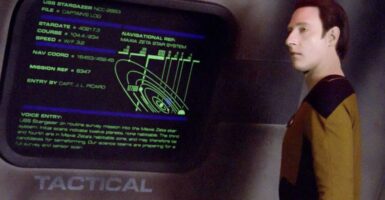Star Trek Attacked Religion With Its Most Lovable Character
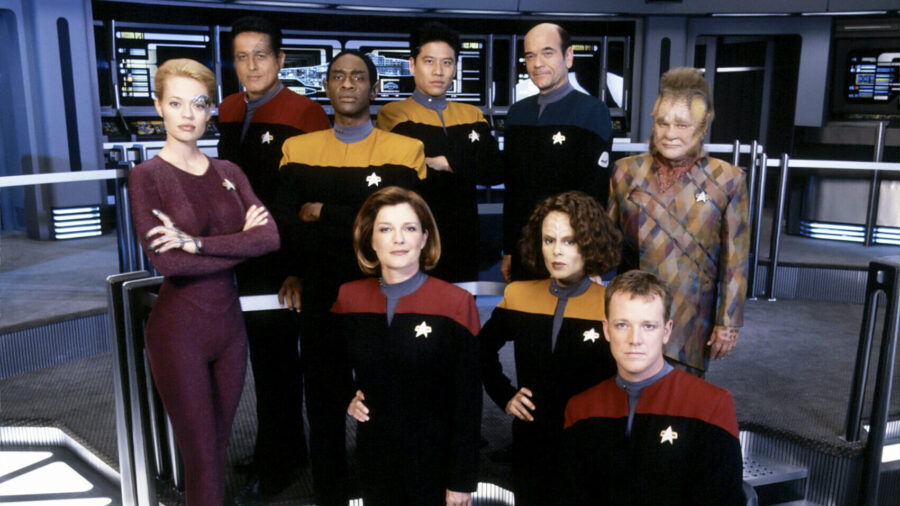
Historically, Star Trek has kept a polite distance from religion, which is largely due to the influence of franchise creator Gene Roddenberry being an atheist. When the franchise approached religion more explicitly, it was usually through aliens and alien cultures, the most notable example of which is Captain Sisko becoming a kind of cosmic Jesus to the Bajorans in Star Trek: Deep Space Nine. However, there was one memorable occasion when Star Trek arguably attacked religion: in the Voyager episode “Mortal Coil,” Neelix (Ethan Phillips) dies and is resurrected 19 hours later, beginning an existential crisis caused by the fact he now knows there is no afterlife as his religion describes.
Death And Resurrection
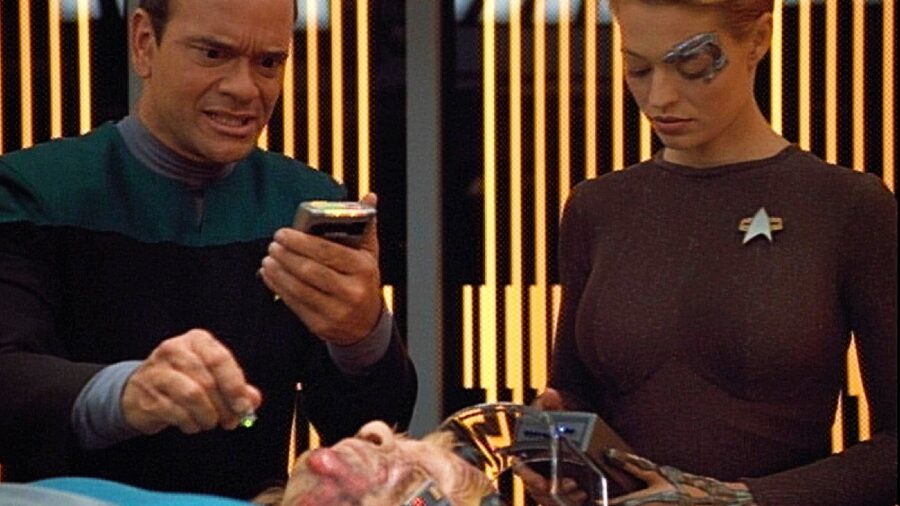
In Star Trek: Voyager, Neelix is rarely placed in mortal danger, but near the beginning of “Mortal Coil,” he dies on what is meant to be a routine survey mission. On any other ship with any other crew, he would have stayed dead, but thanks to the combined talents of Seven of Nine (Jeri Ryan) and The Doctor (Robert Picardo), Neelix is resurrected almost a day after his sudden death. Rather than celebrating his return to the land of the living, though, Neelix almost immediately begins to question his own religion based on his experiences.
No Great Forest
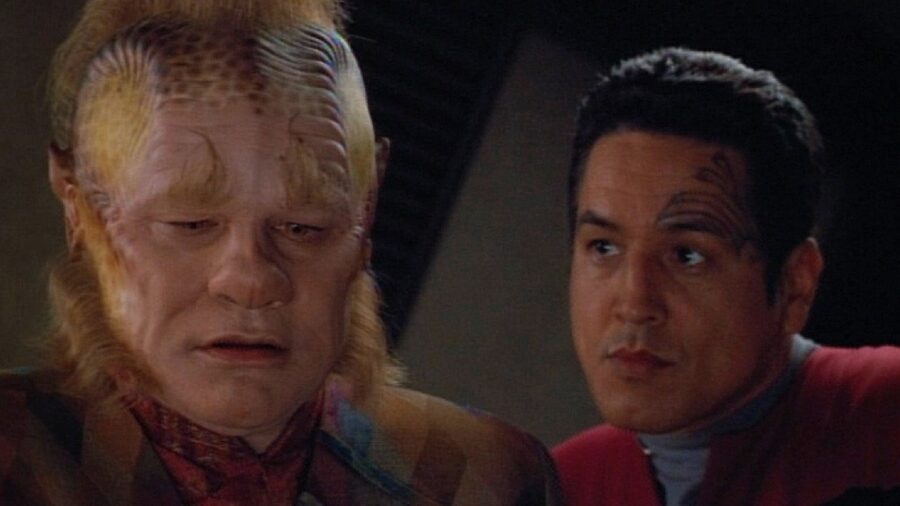
Neelix is a Talaxian, and like most cultures in the real world, these Star Trek aliens have a religion that involves an afterlife. Neelix fully expected that when he passed away, he would see a kind of Heaven analog known as “the Great Forest.” As he confesses to Chakotay (Robert Beltran) while morbidly reviewing the footage of his death, Neelix doesn’t see the Great Forest or any other kind of afterlife, and this causes him to question the religion he had believed in his entire life.
Neelix Almost Gives Up
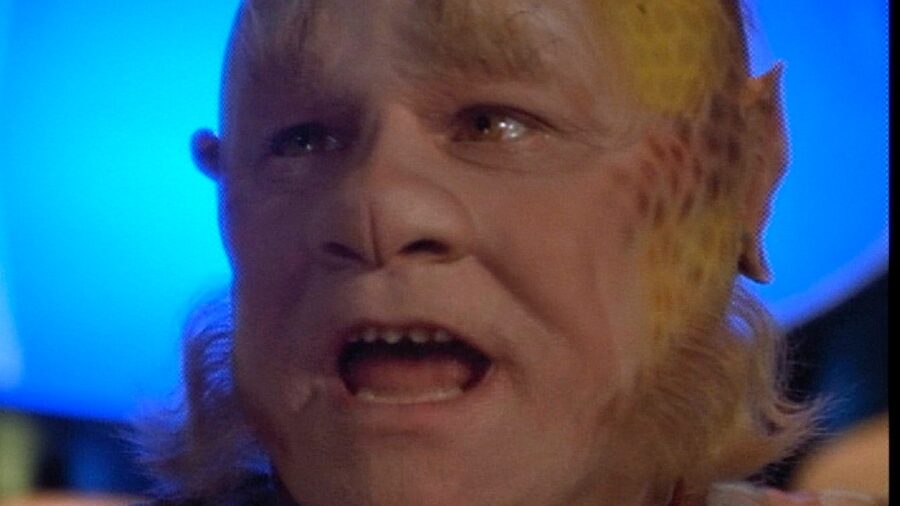
From here, “Mortal Coil” gets remarkably dark in very short order: in a failed vision quest, Neelix sees himself mocked by everybody from his dead sister to his beloved shipmates. Because the Star Trek hero continues to feel betrayed by his religion, Neelix prepares to commit suicide by beaming himself into a nearby nebula. The only reason he stops is that Ensign Wildman’s daughter thinks she saw a monster and wants Neelix to tuck her in, which he does.
Neelix Finds Something To Live For
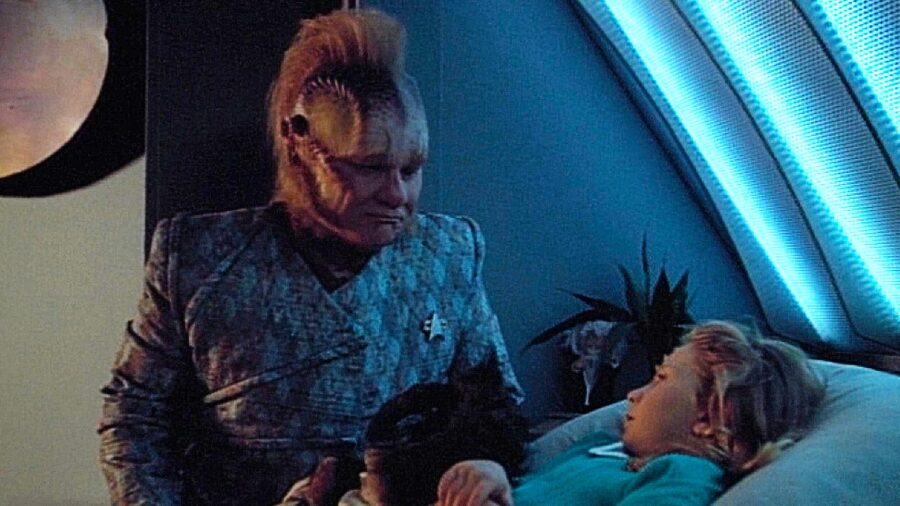
The end of this Star Trek: Voyager episode is meant to be a positive and humanistic message: Neelix loses his religion, but he finds a new reason to live once he realizes that he can embrace a purpose in life beyond the beliefs he grew up with. “Mortal Coil” writer and future Hannibal showrunner Bryan Fuller felt Neelix’s character arc echoed his own journey, as Fuller had grown up Catholic and eventually lost his faith. Similarly, producer Brannon Braga told Cinefantastique that he enjoyed that “Neelix does not actually regain his faith, and yet he has passed on something to the little girl.”
Star Trek Shows Intolerance?
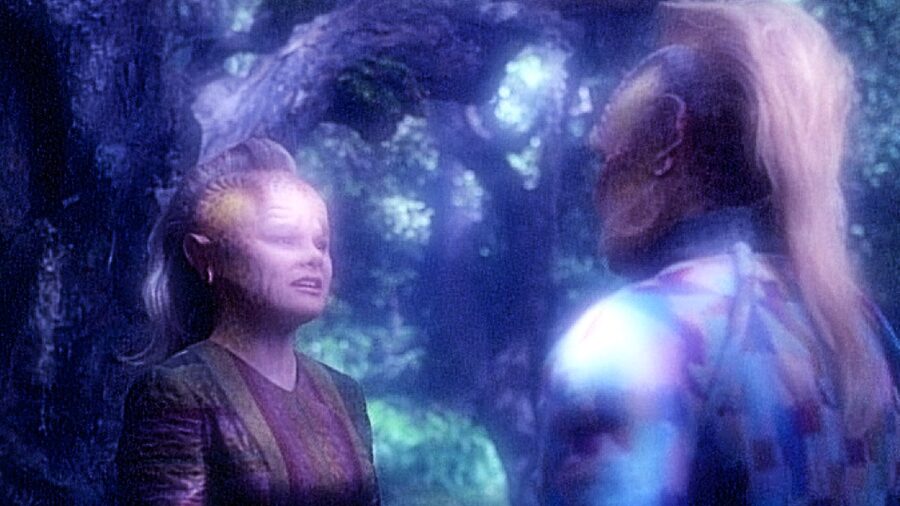
To atheists like the late, great Gene Roddenberry and humanists like Fuller, this Star Trek ending is very uplifting and arguably embodies the franchise’s entire attitude toward religion. In rewatching it, however, we can’t help but feel the episode effectively attacks and even mocks audiences who are themselves devoutly religious. This is Star Trek going out of its way to confirm Neelix’s beliefs (and, implicitly, the beliefs of all religions) are false. It underscores the folly of tethering yourself too closely to any kind of religion and pointedly declares that the only way to find real purpose in life is to ignore religion altogether.
That doesn’t keep this Star Trek: Voyager episode from being one of the finest in the series, but it’s a bit galling that a show that went out of its way to validate Chakotay’s spiritual beliefs (albeit in the most cringe-worthy ways) also went out of its way to invalidate those harbored by another character. For a franchise as tolerant as Star Trek, this is remarkably shortsighted and even a tad hypocritical. After all, it’s clear that Captain Janeway (Kate Mulgrew) worships the dark god known as coffee, and if anyone tries to attack those beliefs, well… we all saw what she did to Tuvix, right?

